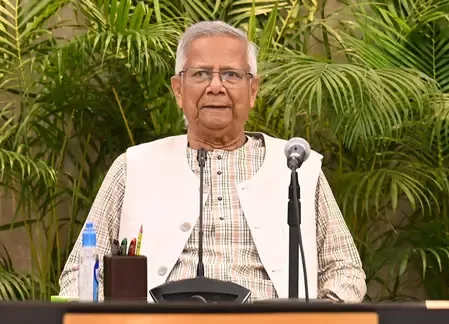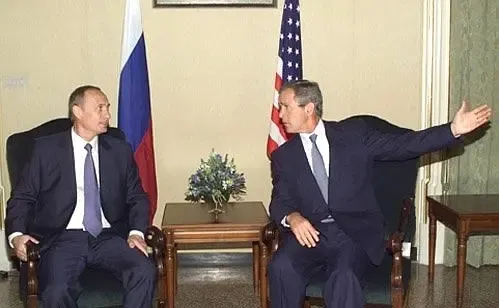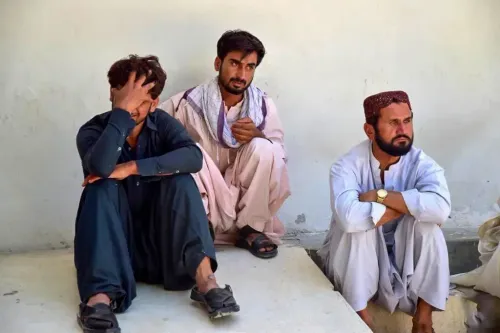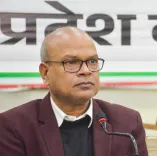Is Yunus Aligning with Islamist Hardliners?

Synopsis
Key Takeaways
- Awami League accuses Yunus of radicalizing politics.
- Minority communities face rising threats.
- Concerns about secularism being eroded.
- Radical Islamist groups gaining political foothold.
- Yunus accused of empowering extremists.
Dhaka, Sep 19 (NationPress) The Awami League of Bangladesh has leveled serious allegations against Muhammad Yunus, the chief advisor of the interim government, claiming he is intentionally collaborating with Islamist hardliners. The party warned that such actions are steering the nation toward the dangerous waters of religious fundamentalism.
Criticizing Yunus, the Awami League stated that, “during his tenure, proscribed organizations like Hizb ut-Tahrir have made a comeback, convicted militants have been released, and extremist leaders are being integrated into political and administrative frameworks,”
“Places of worship have been violated, minorities are living in fear, women’s rights are being undermined, and secularism is being systematically removed from educational materials and constitutional texts. This reflects not merely a governance failure; it reveals a conscious empowerment of radical ideologies,” they added.
The Awami League further asserted that by providing a platform for fundamentalists, Yunus has weaponized religion to fortify his “fragile hold” on power.
Claiming that Bangladesh is now dealing with both political instability and an existential threat under Yunus’s leadership, the party argued that the nation’s secular identity, social cohesion, and future are being jeopardized by the ambitions of “one man.”
“By allowing extremists into critical institutions, permitting their return to educational campuses, and facilitating the resurgence of organizations like Jamaat-e-Islami, Yunus has not just tolerated radicalism; he has mainstreamed it. The protective barrier that once existed between the state and militancy has been dismantled, leaving ordinary citizens, especially minorities and secular advocates, increasingly vulnerable,” emphasized the Awami League.
The party expressed alarm that as Islamist factions reclaim influence under Yunus’s administration, Bangladesh’s minority communities—including Hindus, Buddhists, and Christians—are once again living in trepidation.
The Awami League noted that these minority groups have historically contributed to the nation’s rich cultural landscape, but today they are facing renewed threats of violence, intimidation, and forced migration.
“In numerous villages, reports have emerged of temples being vandalized, churches attacked, and homes of minority families set ablaze. Many have fled their ancestral properties after receiving threats, while others are in hiding, uncertain if the government will provide them any protection. This quiet exodus has been devastating, as families abandon livelihoods built over generations,” the party highlighted.
The Awami League insisted that the rise of the radical Islamist party Jamaat-e-Islami and its student wing, Islami Chhatra Shibir, is not coincidental, nor is the increased prominence of the Islamist group Hefazat-e-Islam in educational and cultural spheres in Bangladesh.
“Every concession made to Islamist demands—be it sidelining secular voices in constitutional reforms, neglecting assaults on minorities, or downplaying campus militancy—only serves to deepen extremism. By recognizing these groups as legitimate stakeholders, Yunus has inadvertently opened the floodgates for their ideology to seep back into the state’s operations,” the party concluded.










